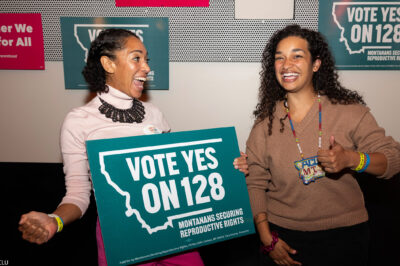Yesterday I spoke before the Committee on Prevention Services for Women at the Institute of Medicine on the critical importance of covering birth control as a preventive service in health care. The Department of Health and Human Services (HHS), as part of the Patient Protection and Affordable Care Act, will soon be issuing guidelines on what constitutes preventive care for women. Groups like the United States Conference of Catholic Bishops, Family Research Council and Alliance Defense Fund are trying to stop HHS from including birth control on the list of covered preventive services. They claim that insurance coverage of birth control is a religious matter. The ACLU strongly believes that birth control should be included among these important services and that first and foremost birth control is a personal, private decision that should be made by a woman in consultation with her doctor.
The ACLU delivered the following comments to the Committee on Wednesday afternoon:
Access to safe and effective contraception is a critical component of basic health care for women. Without contraception, women have more unplanned pregnancies and are less likely to obtain adequate prenatal care in a timely manner. Access to contraception also helps women and couples decide based on their own religious beliefs and personal circumstances whether and when to have children. Currently publicly funded programs such as Medicaid and the Federal Employees Health Benefits Program and nearly 90 percent of employer-purchased insurance plans cover contraception. It is imperative that the new health insurance program recognize the obvious importance of contraception as a preventive service.
In America, we are all free to decide, based on our own moral and religious beliefs, whether and when to have children. For many of us, religious beliefs influence the decisions we make. These beliefs, however, cannot be mandated by law; they are a matter of personal conscience and individual choice. Religious leaders are free to express their belief that birth control is immoral, but they cannot interfere in our personal decision making by turning their religious beliefs into federal law and taking away access to critical health care.






